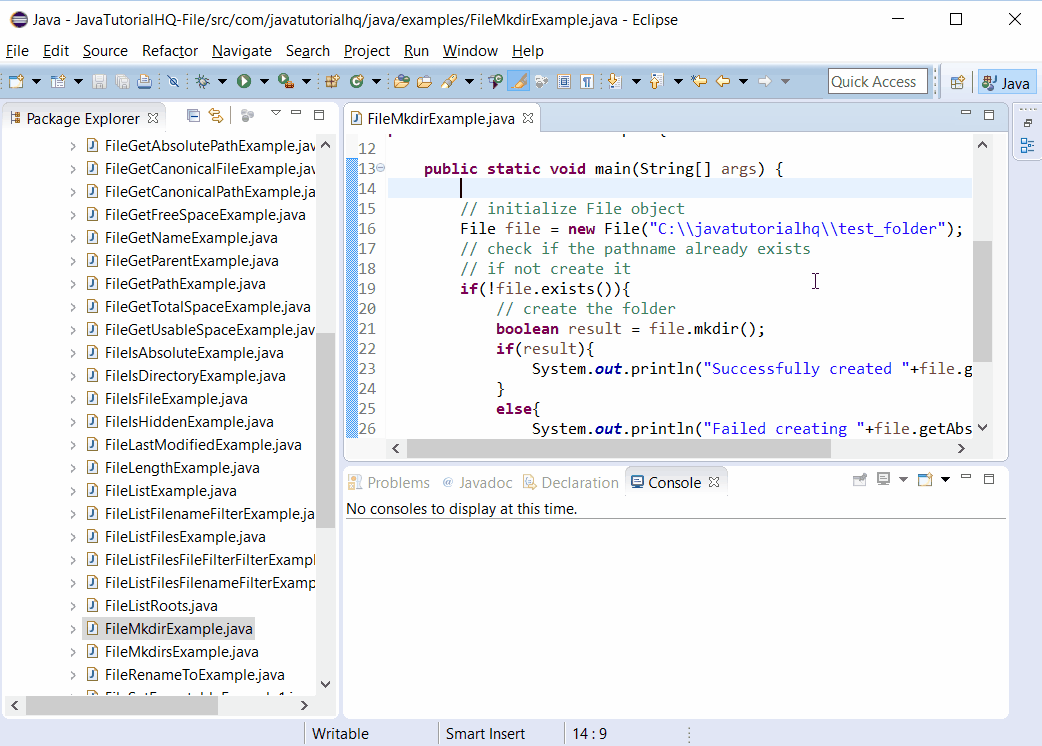java.io.File mkdir()
Description
Throws:
- SecurityException – If a security manager exists and its SecurityManager.checkWrite(java.lang.String) method does not permit the named directory to be created.
Method Syntax
public boolean mkdir()
Method Argument
| Data Type | Parameter | Description |
|---|---|---|
| N/A | N/A | N/A |
Method Returns
This method returns boolean, true if and only if the directory was created; false otherwise.
Compatibility
Requires Java 1.0 and up
Java File mkdir() Example
Below is a java code demonstrates the use of mkdir() method of File class. The example presented might be simple however it shows the behaviour of the mkdir() method of File class. Basically we called this method and we put a check on the returned value to check if the file specified has been created successfully or not.
The example provided below shows that on the first run, the file has been created successfully while on the second run it failed. That is because the file is already created on the first run, thus succeeding run will definitely fail as describe on the earlier part of this document.
package com.javatutorialhq.java.examples;
import java.io.File;
/*
* This example source code demonstrates the use of
* mkdir() method of File class.
*
*/
public class FileMkdirExample {
public static void main(String[] args) {
// initialize File object
File file = new File("C:javatutorialhqtest_folder");
// check if the pathname already exists
// if not create it
if(!file.exists()){
// create the folder
boolean result = file.mkdir();
if(result){
System.out.println("Successfully created "+file.getAbsolutePath());
}
else{
System.out.println("Failed creating "+file.getAbsolutePath());
}
}else{
System.out.println("Pathname already exists");
}
}
}

